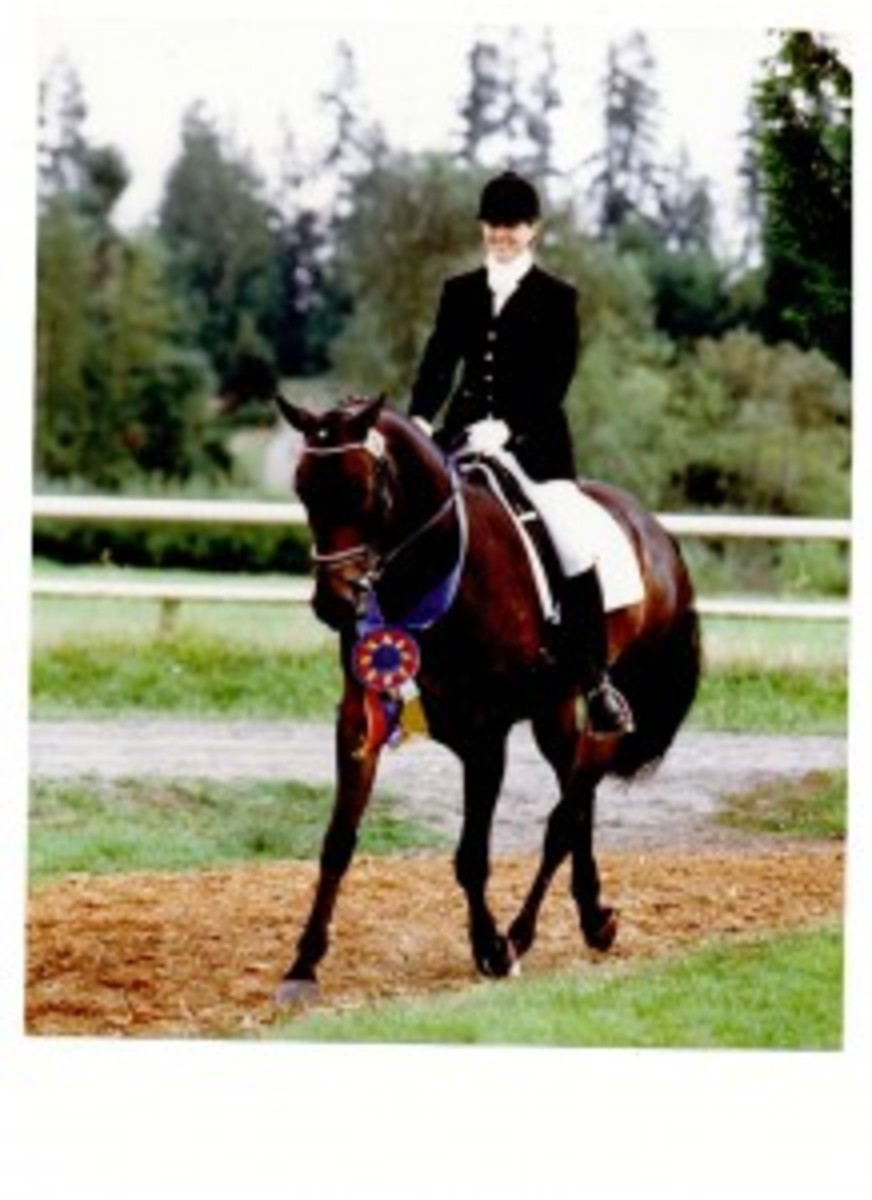
When your horse balks at something you’ve asked him to do–perhaps a maneuver he knows well, or something new you’re trying to teach him–do you automatically insist? Or do you stop and think, realizing his resistance can be a signal? Thoughtful riders generally don’t insist on compliance from a reluctant horse until they’ve eliminated certain other possible causes for that reluctance.
Such as physical discomfort or pain.
I remember how frustrated I was years ago when a Quarter Horse gelding I owned at the time refused to bend on a circle–especially going to the right. Bending had never been his favorite thing, but I’d been making progress with him in that regard. Then suddenly he was backsliding. Or so I thought.
In reality, he had a right-foot issue that was prompting him to avoid bending right to keep from putting any extra pressure on that foot. Once that slight bruise was healed, his “unwillingness” and the resulting “training issue” cleared right up.
Another time, more recently, my daughter’s Arabian/mustang-cross gelding, Brego, began not wanting to round through his topline. Whenever I’d ride him, I couldn’t figure out why he was being such a pill about flexing vertically through his back and reaching up underneath himself with his hind legs.
Again, I felt frustrated…and now I wish so much I could go back in time and undo the insistence I used to try to get him as round as I just “knew” he could be.
Turns out he was in the early stages of EPM?equine protozoal myeloencephalitis–a microscopic-bug infection of the central nervous system. No wonder he didn’t want to bend his spine! I wish my first thought back then had been, “This horse is normally so willing–something must be wrong. Let’s find out what it is.”
Instead of, “Horse, behave.”
Horse & Rider‘s consulting editor, Barb Crabbe, DVM, is adamant on this issue. As she points out, “Shoulder pain, stifle pain, foot pain–any of these can make a horse reluctant to work and resistant to bending, especially. If you suspect a physical problem, check in with your vet before resuming work.”
She adds that horses sometimes just have bad days, too, especially if they’re a little muscle sore.
Knowing this and always acting accordingly are two different things, however even for an upper-level dressage rider who’s also a vet.
As Dr. Barb explains, drawing from her own example: “I’d been on vacation and my mare had been on pasture turnout for two weeks. Then, on the day after my first really solid ride on her, I got grumpy because she was being really resistant in the rein back. I didn’t let it go–and I wish I had.
“The worst part,” she goes on, “is that I’d even planned on just doing an easy/stretchy ride that day because I figured she might be a little sore.

I know I sometimes get sore from the gym or pilates, so why wouldn’t horses? Once I was riding, however, my assertiveness kicked in. Stupid. I apologized to her the next day, and fortunately for me, she’s a forgiving type.”
Dr. Barb’s bottom line? “It’s essential for us as riders always to consider possible physical causes for resistance, then follow through accordingly.”
Easy to say, harder to do, but always worth striving for.
NOTE: For details on physical conditions that can affect your horse’s behavior, see Dr. Barb’s popular book, The Comprehensive Guide to Equine Veterinary Medicine.






